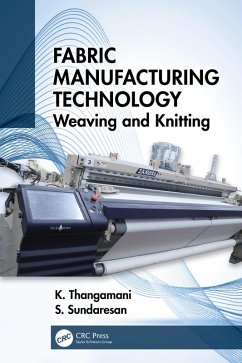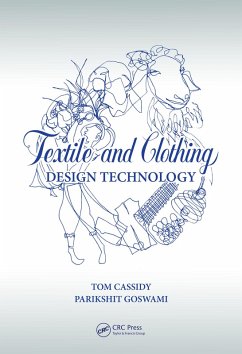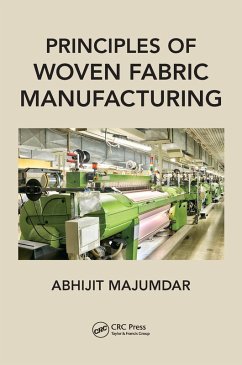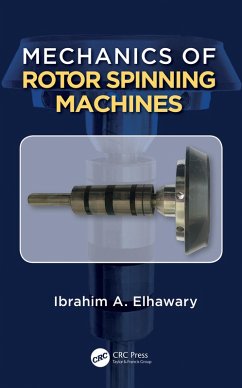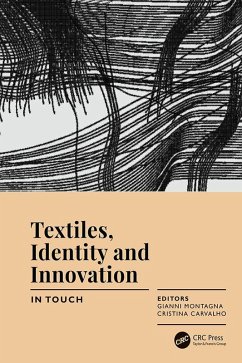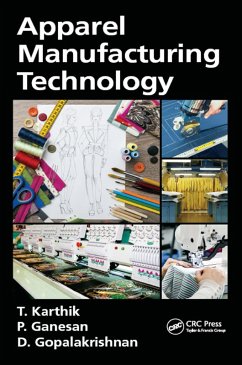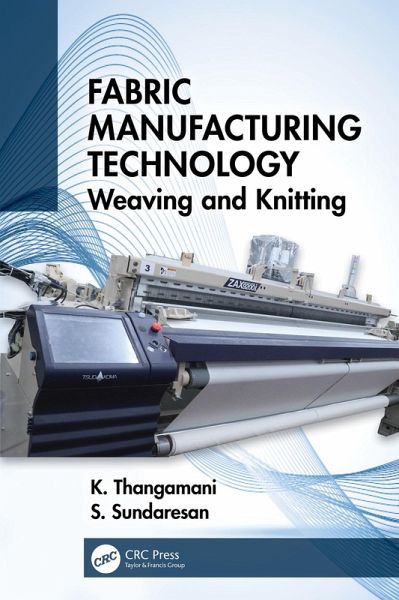
Fabric Manufacturing Technology (eBook, PDF)
Weaving and Knitting
Versandkostenfrei!
Sofort per Download lieferbar
44,95 €
inkl. MwSt.
Weitere Ausgaben:

PAYBACK Punkte
22 °P sammeln!
Fabric Manufacturing Technology: Weaving and Knitting gives the reader a brief idea about the processes involved in fabric formation methods, namely weaving and knitting. It includes various mechanisms involved beginning with primitive handlooms to the latest shuttleless looms, and from hand knitting to the ultra-modern electronic knitting machines. Various design aspects involved in producing the different types of woven and knitted fabrics are dealt with comprehensively. The techno-economics of the latest weaving and knitting machines have been described, including applications of woven and ...
Fabric Manufacturing Technology: Weaving and Knitting gives the reader a brief idea about the processes involved in fabric formation methods, namely weaving and knitting. It includes various mechanisms involved beginning with primitive handlooms to the latest shuttleless looms, and from hand knitting to the ultra-modern electronic knitting machines. Various design aspects involved in producing the different types of woven and knitted fabrics are dealt with comprehensively. The techno-economics of the latest weaving and knitting machines have been described, including applications of woven and knitted fabrics in the medical field, automotive engineering, aeronautical engineering, protective clothing, and more.
Features
This book is aimed at senior undergraduate students in textile processing and fabric manufacturing.
Features
- Covers the principles involved in the numerous operations of weaving and knitting processes
- Gives a basic understanding of fabric production, quality control and production
- Provides a summary of the fabric manufacturing process of weaving, knitting and nonwovens
- Discusses principles of mechanisms, as well as details of present-day machinery, with illustrations
- Explores the latest developments in knitting production by whole garment (Shima Seiki) and Knit and Wear (Stoll), CAD/CAM production and simulation of woven fabrics
This book is aimed at senior undergraduate students in textile processing and fabric manufacturing.
Dieser Download kann aus rechtlichen Gründen nur mit Rechnungsadresse in A, B, BG, CY, CZ, D, DK, EW, E, FIN, F, GR, HR, H, IRL, I, LT, L, LR, M, NL, PL, P, R, S, SLO, SK ausgeliefert werden.




